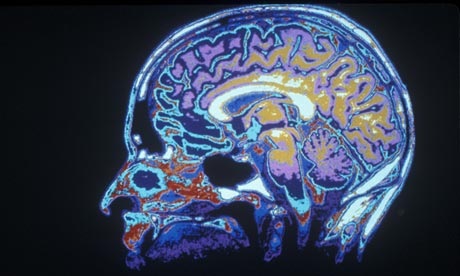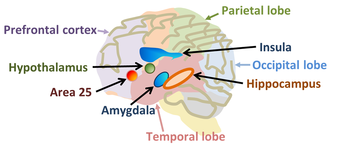Cognitive science - Wikipedia, the free encyclopedia
An easier version:
Cognitive science - Simple English Wikipedia, the free encyclopedia
Latest news:
Poverty Impedes Cognitive Function
Poverty impairs cognitive function | e! Science News
Poverty strains cognitive abilities, opening door for bad decision-making, new study finds - Washington Post
The politics:
The work of the educationist E.D. Hirsch and the studies in cognitive science assembled and analysed by Daniel Willingham demonstrate, with irresistible power, that a traditional, knowledge-rich curriculum is the key to educational success, whatever path a student eventually decides to follow. Hirsch has proved, over a distinguished academic lifetime, that the greater the level of cultural capital a child enjoys, the more rapidly and effectively they learn to read, and the greater their appetite for further discovery. Willingham’s work - and that of the many cognitive scientists he has analysed - demonstrates that it is through the acquisition of knowledge that intelligence is formed. And the more a child learns, memorises, and commits to heart, the greater the capacity for critical thought and creative work.
Michael Gove MP: Why traditional education is a work of social justice – one that I'm striving to deliver
The history:
In 1959, Noam Chomsky published a scathing review of B. F. Skinner's book Verbal Behavior. At the time, Skinner's behaviorist paradigm dominated psychology: Most psychologists focused on functional relations between stimulus and response, without positing internal representations.
The term cognitive science was coined by Christopher Longuet-Higgins in his 1973 commentary on the Lighthill report, which concerned the then-current state of Artificial Intelligence research.[10]
Cognitive science - Wikipedia, the free encyclopedia
An interesting and very popular look at the subject:
Hofstadter has emphasized that GEB is not about mathematics, art, and music but rather about how cognition and thinking emerge from well-hidden neurological mechanisms.
Gödel, Escher, Bach - Wikipedia, the free encyclopedia
The critics:

Is cognitive science full of crap? A biophyics researcher recently asked this of a cognitive science researcher. The latter answered with spirit. My own answer is that of course cog sci is full of crap — except when it’s not. Which makes it like most science, only more so.
It started when Cambridge University memory researcher Jon Simons posted a lament about how proposed UK science-funding cuts especially threaten young, developing researchers. The cog-sci debate broke out when University of College London biophysicist David Colquhoun suggested thatperhaps precious funding might be better used if less were spent on cognitive science:
I couldn’t agree more about the very real danger posed to early-career and even mid-career scientists by the lack of smallish responsive mode grants.But being in a different area, I may see the problem slightly differently. At the risk of being lynched, I’ll have to admit that I sometimes sigh when see the next “new phrenology” study come out. Only too often the results are uninterpretable (though university PR departments love the fact that, however trivial, they make headlines). The equipment is enormously expensive and perhaps some of that money could be better spent (for example, on fundamental biophysics!).
When pressed for examples, Colquhoun named a couple of studies, most prominently a 2000 study about the “taxi drivers’ hippocampus.” He was referring to work at the lab of Eleanor Maguire, who found that London taxi drivers, who to earn their licenses must pass a horrifically difficult navigational and geographic exam called The Knowledge, had bigger hippocampuses than most people did.
Hippocampuses play an vital role in memory and spatial navigation. As the paper noted, the bigger hippocampi in London cab drivers might mean one of (at least) two things: That memorizing the streets and routes of London made their hippocampuses grow; and/or that having big hippocampuses to start with made you better able to memorize enough routes and streets of the Knowledge to pass it. The paper leaned toward the former explanation.
Colquhoun, however, while admitting he didn’t know the study that well, said he was exasperated both with the sorts of big conclusions often produced by brain-imaging studies studies and with the hype they generate. Colquhoun was drawing on a strain of criticism that had already pained Simons and many of his readers. The charge of “new phrenology” carries a special edge, since phrenology, a sort of skull-reading 150 years ago, was an ugly hoax that now looks one step this side of voodoo.
Developmental Neuroscience =Neural development - Wikipedia, the free encyclopedia

Neuroscience:
Neuroscience - Wikipedia, the free encyclopedia
Neuroscience - Simple English Wikipedia, the free encyclopedia
And children:
Neuroscience and child development
Developmental Social Neuroscience and Childhood Brain Insult: Theory and Practice: Amazon.co.uk: Vicki Anderson, Miriam H. Beauchamp: Books
An interesting course:
Tobias Nolte, Developmental Neuroscience and Psychopathology MSc - YouTube
Celeste Cheung- Developmental Neuroscience and Psychopathology MSc - YouTube
Some popular works:
The Man Who Mistook His Wife for a Hat - Wikipedia, the free encyclopedia
More news:
BRAIN Initiative - Wikipedia, the free encyclopedia
Society for Neuroscience quashing dissent on BRAIN Initiative, critic complains : Nature News Blog
Neuroscientists Weigh In on Obama's BRAIN Initiative: Scientific American
A critique:
"Neurobabble" vs Real Science
Psychobabble - Wikipedia, the free encyclopedia
Another:

Think brain scans can reveal our innermost thoughts? Think again | Raymond Tallis | Comment is free | The Observer
Raymond Tallis Takes Out the 'Neurotrash' - The Chronicle Review - The Chronicle of Higher Education
In a devastating critique Raymond Tallis exposes the exaggerated claims made for the ability of neuroscience and evolutionary theory to explain human consciousness, behaviour, culture and society. While readily acknowledging the astounding progress neuroscience has made in helping us understand how the brain works, Tallis directs his guns at neuroscience s dark companion -- Neuromania, as he describes it -- the belief that brain activity is not merely a necessary but a sufficient condition for human consciousness and that consequently our everyday behaviour can be entirely understood in neural terms.
Aping Mankind: Neuromania, Darwinitis and the Misrepresentation of Humanity: Amazon.co.uk: Raymond Tallis: Books
Neuro-criticisms by Raymond Tallis
Who's in charge – you or your brain? | Science | The Observer
With radio discussion:
BBC - Radio 4 - Science Explorer: Matthew Taylor featured in Brain Culture: Neuroscience and Society
BBC Radio 4 - Brain Culture: Neuroscience and Society
And other critiques:

What Neuroscience Really Teaches Us, and What It Doesn't : The New Yorker

Neuroscience - Under Attack - NYTimes.com

Neuroscience of free will - Wikipedia, the free encyclopedia
Have you heard of this:
nudge verb - definition in the British English Dictionary & Thesaurus - Cambridge Dictionaries Online
Nudge blog · Improving Decisions About Health, Wealth, and Happiness
Nudge (book) - Wikipedia, the free encyclopedia
BBC News - Why a nudge is not enough to change behaviour
First Obama, now Cameron embraces 'nudge theory' - UK Politics - UK - The Independent
An interesting visual to finish with:
RSA - RSA Animate - The Divided Brain
.
.
.
No comments:
Post a Comment